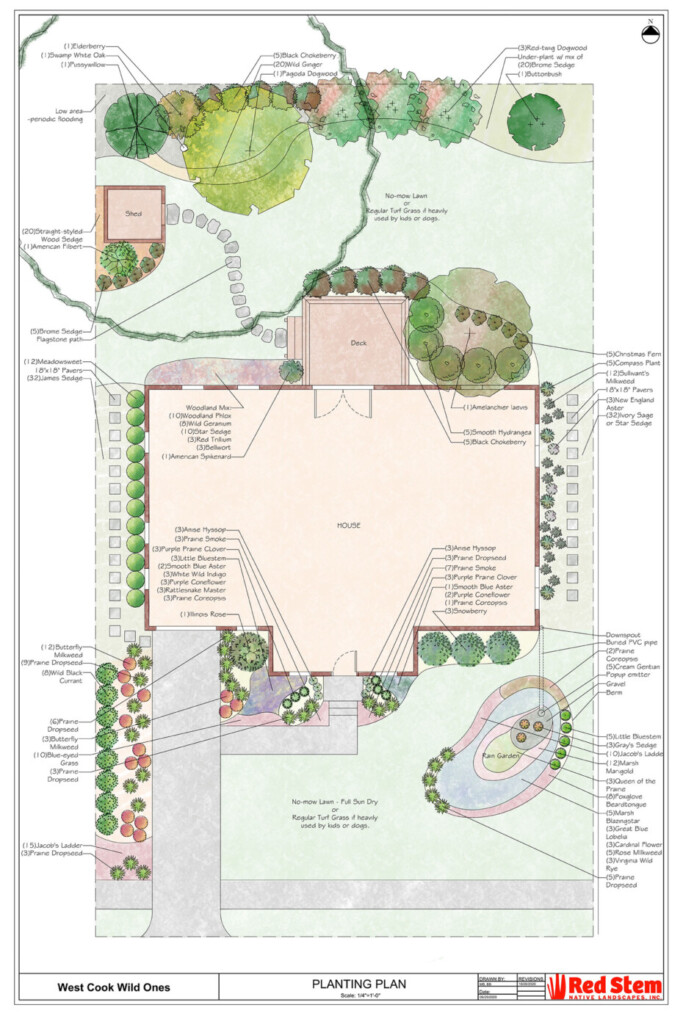
Printing note: This design was created to be 8.5″ x 14″ and the design pdf will print best on legal size paper.
Plant List
This list is inclusive of only the native plants in this specific native garden design. The list is meant to provide a basic preview of the beautiful and diverse plants featured in this design and serve as a reference tool when selecting plants at a nursery. (The list can be printed in two columns using landscape mode in your print settings.) More thorough information about each of these native plants can be found online at the Audubon, Lady Bird Johnson Wildflower Center and United States Department of Agriculture websites, all of which provide a wealth of native plant information including comprehensive North American native plant databases.
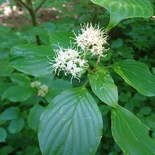
Alternate Leave Dogwood(Cornus alternifolia)
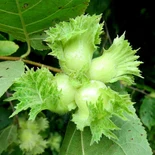
American Filbert(Corylus americana)
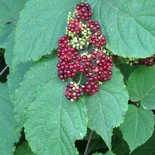
American Spikenard(Aralia racemosa)
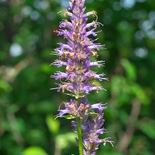
Anise Hyssop(Agastache foeniculum)
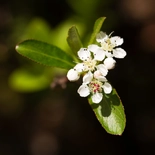
Black Chokeberry(Aronia melanocarpa)
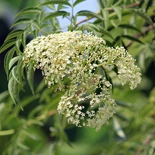
Black Elderberry(Sambucus canadensis)
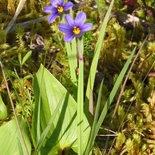
Blue-eyed Grass(Sisyrinchium L.)
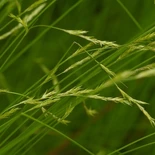
Brome Sedge(Carex bromoides)
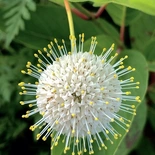
Buttonbush(Cephalanthus occidentalis)
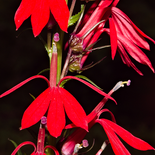
Cardinal Flower(Lobelia cardinalis)
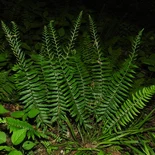
Christmas Fern(Polystichum acrostichoides)
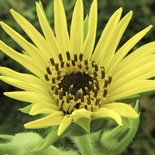
Compass Plant(Silphium laciniatum)
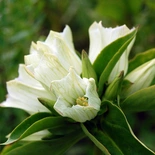
Cream Gentian(Gentiana alba)
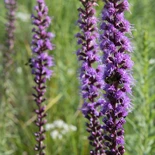
Dense Blazing Star(Liatris spicata)
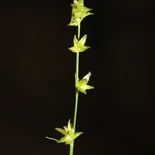
Eastern Star Sedge(Carex radiata)
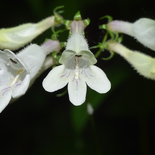
Foxglove Beardtongue(Penstemon digitalis)
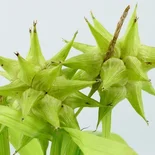
Gray's Sedge(Carex grayi)
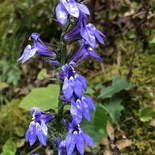
Great Blue Lobelia(Lobelia siphilitica)
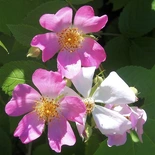
Illinois Rose(Rosa setigera)
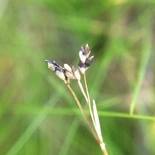
Ivory Sedge(Carex eburnea)
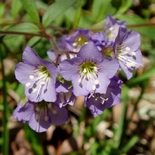
Jacob's Ladder(Polemonium reptans)
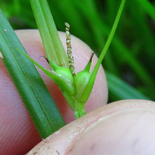
James Sedge(Carex jamesii)
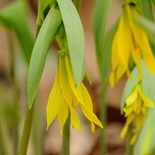
Large-flowering Bellwort(Uvularia grandiflora)
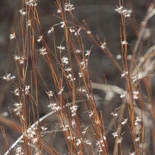
Little Bluestem Grass(Schizachyrium scoparium)
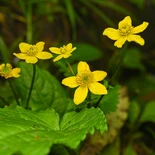
Marsh Marigold(Caltha palustris)
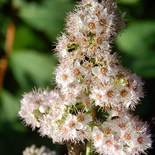
Meadowsweet(Spiraea alba)
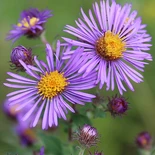
New England Aster(Symphyotrichum novae-angliae)
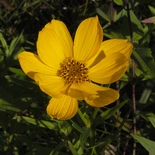
Prairie Coreopsis(Coreopsis palmata)
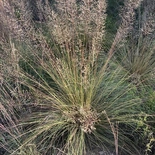
Prairie Dropseed(Sporobolus heterolepis)
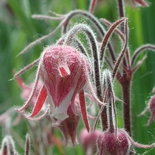
Prairie Smoke(Geum triflorum)
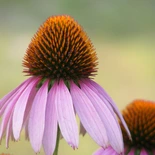
Purple Coneflower(Echinacea purpurea)
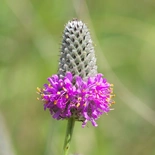
Purple Prairie Clover(Dalea purpurea)
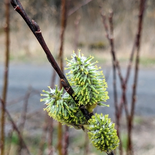
Pussy Willow(Salix discolor)
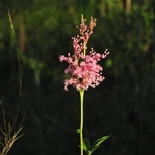
Queen of the Prairie(Filipendula rubra)
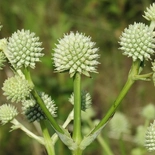
Rattlesnake Master(Eryngium yuccifolium)
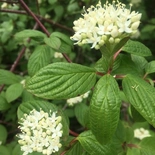
Red Osier Dogwood(Cornus sericea)
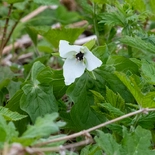
Red Trillium(Trillium erectum)
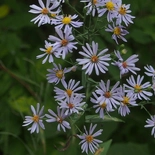
Smooth Blue Aster(Symphyotrichum laeve)
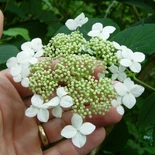
Smooth Hydrangea(Hydrangea arborescens)
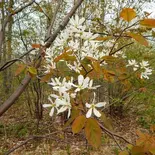
Smooth Serviceberry(Amelanchier laevis)
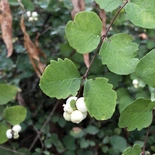
Snowberry(Symphoricarpos albus)
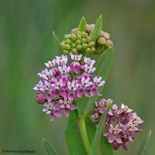
Sullivant's Milkweed(Asclepias sullivantii)
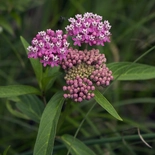
Swamp Milkweed(Asclepias incarnata)
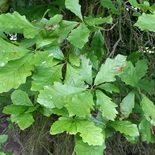
Swamp White Oak(Quercus bicolor)
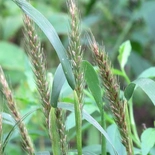
Virginia Wild Rye(Elymus virginicus)
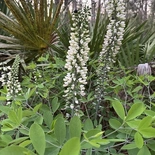
White Wild Indigo(Baptisia alba)
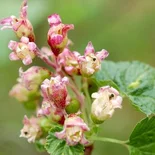
Wild Black Currant(Ribes nigrum)
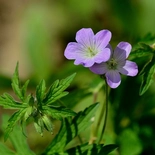
Wild Geranium(Geranium maculatum)
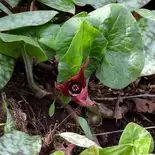
Wild Ginger(Asarum canadense)
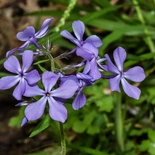
Woodland Phlox(Phlox divaricata)
About the Designer

Designer Monica Buckley’s childhood home featured an organic garden, a big compost pile, and rows of her dad’s irises, bred and grown for show. The garden was a source of wonder, but true entrancement took hold when a kid from her block showed her caterpillars, chrysalises and cocoons, and shared the names of butterflies, moths, and the plants their larvae needed to eat. That sense of the interconnectedness of nature colored her world, and after a career in publishing, Monica decided to follow her original passion. After several years of classes from The Morton Arboretum and the Chicago Botanic Garden and with encouragement from her mentor, Art Gara, she took the leap in 2013. Her company, Red Stem Native Landscapes, designs, builds and cares for native plant gardens in and around Chicago.
Designer Statement
Our aim at Red Stem Native Landscapes is to delight our customers with beautiful, ever-changing native gardens that yield year-round pleasure while supporting native and migrating wildlife. Little of the original native flora exists in a countryside now so filled with herbicide-resistant crops and invasive plants that scant hope for preserving our natural heritage exists without the deliberate help of people through stewardship of natural areas and in the choices we make in our personal and commercial spaces. Although our constructed gardens can never attain the mind-boggling genetic diversity of our precious few natural remnant areas, we hope they can help build bridges to these and to reconstructed natural areas while providing territory and sustenance to the wildlife that require native plants to survive.
Free National Webinar: From Wasteland to Wonder with Basil Camu
February 18th at 6:00 PM (CT)
Our upcoming webinar with Basil Camu explores practical, evidence based ways to heal suburban and urban landscapes by working with trees, soil, and natural systems, drawing on real world practices from Leaf & Limb and community centered models for restoring life where we live, work, and play.!
About Wild Ones
Wild Ones (a 501(c)(3) nonprofit organization) is a knowledgeable, hands-on, and supportive community focused on native plants and the ecosystem that depends on them. We provide resources and online learning opportunities with respected experts like Wild Ones Honorary Directors Doug Tallamy, Neil Diboll, and Larry Weaner, publishing an award-winning journal, and awarding Lorrie Otto Seeds for Education Program grants to engage youth in caring for native gardens.
Wild Ones depends on membership dues, donations and gifts from individuals like you to carry out our mission of connecting people and native plants for a healthy planet.
Looking for more native gardening inspiration? Take a peek at what our members are growing!
